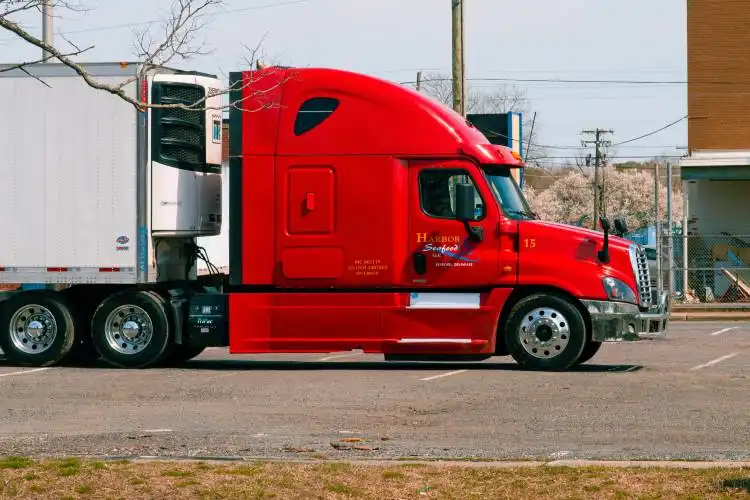Start a Towing Company
Turn Your Passion Into Profit: Be the Superhero of The Automotive World!
| Updated


TOWING COMPANY
Embarking on the adventure of starting a Towing Company can be both thrilling and adrenaline-pumping, much like a surprise trip on a tow truck! In the maze of the modern transit system, vehicles often falter, leading to the necessity of tow trucks - your knight in shining armor on wheels. Simply put, a towing company specializes in ferrying immobile vehicles from one place to another, rescuing forsaken cars on highways, and helping drivers in distress. With your tow truck fleet, you could be the superhero that the automotive world needs, making every breakdown just a pitstop in the journey of life!
Jump to Business Plan
RELATED BUSINESS IDEAS
Browse ALL Cars & Transportation Solutions Business Ideas
Discover Your Perfect Domain
Unlock the door to your online success with our hand-picked selection of premium domain names. Whether you're starting a new venture or rebranding an existing one, the right domain can set the tone for your digital presence. Browse through our curated list, each with its unique potential to enhance your brand's visibility and credibility.
TOWING MINI BUSINESS PLAN
This a quick reality check to help you identify the strengths and weaknesses of your business concept before you dive in.
Expected Percent Margins:
- Gross Margin: 60-70%
- Net Profit Margin: 15-25%
Earnings Expectations:
- Daily Earnings: $300 - $700
- Weekly Earnings: $2,100 - $4,900
- Monthly Earnings: $9,000 - $21,000
- Annual Earnings: $108,000 - $252,000
Actions to Hit Those Numbers:
Equipment and Operations:
- Initial Investment: Around $100,000 - $150,000 for tow trucks and equipment.
- Maintenance: Regular maintenance of vehicles to prevent breakdowns and delays.
Marketing and Customer Acquisition:
- Local Advertising: Collaborate with local businesses (like auto repair shops) and invest in roadside advertising.
- Online Presence: Establish an online presence and utilize the power of search engine optimization to get more calls.
Service Quality:
- Staffing: Hire experienced, professional drivers and operators that can deliver high-quality service.
- Response Time: Ensure fast and efficient response times to enhance customer satisfaction and repeat business.
Cost Control:
- Fuel Costs: Efficient route planning to save on fuel costs which represent a substantial expense in this business.
- Insurance: Ensure adequate insurance to protect against the inherent risks of the towing industry.
Business Operations:
- Operating Hours: Operate 24/7 to cover emergency calls and gain an edge over competitors.
- Service Pricing: Implement competitive pricing for services depending on the type of vehicle, distance of towing, and time of service.
Please note: These are rough estimates. The exact numbers will depend on various factors including your location, competition, and the current economy. Always consult a business advisor or accountant for personalized advice.
NOT WHAT YOU HAD IN MIND? Here are more ideas



Browse ALL Cars & Transportation Solutions Business Ideas
Grab Your Business Website Name
Before you get caught up in the whirlwind of setting up your business, invest in a domain name. It's a small but significant step that lays the foundation for your brand and makes it easier for customers to find and trust you. Just like you wouldn't build a house without securing the land first, don't build a business without securing your domain name.
"Why? Can't that wait?" Here's why it shouldn't
Step 1: Determine if the Business is Right for You
Breakdown of Startup Expenses
Before starting a towing business, it is important to understand the startup costs associated with the venture. These costs can include the purchase of a tow truck, insurance, licensing, permits, and any other necessary equipment. Additionally, you may need to pay for a business name registration, a website, and marketing materials. It is important to understand the total cost of starting a towing business before committing to the venture.
Breakdown of Ongoing Expenses
In addition to the startup costs, it is important to understand the ongoing expenses associated with running a towing business. These expenses can include fuel, vehicle maintenance, insurance, and any other necessary supplies. Additionally, you may need to pay for advertising, website hosting, and other marketing materials. It is important to understand the total cost of running a towing business before committing to the venture.
Examples of Ways to Make Money
There are several ways to make money in a towing business. The most common way is to charge a fee for towing services. Additionally, you can offer roadside assistance services, such as jump-starts, tire changes, and fuel delivery. You can also offer storage services for vehicles that have been towed. Finally, you can offer a variety of other services, such as vehicle recovery, accident cleanup, and vehicle transport.
Step 2: Name the Business
When naming a business, it is important to choose a name that is memorable, easy to spell, and that reflects the services that the business offers. It is also important to make sure that the name is not already taken. To help with this process, it is a good idea to brainstorm potential names, research the names to make sure they are available, and then narrow down the list to the best option. Additionally, it is important to consider the domain name availability and the potential for trademarking the name.
Once a name has been chosen, it is important to register the business with the state and to obtain any necessary licenses and permits. Additionally, it is important to register the business with the Internal Revenue Service (IRS) and to obtain an Employer Identification Number (EIN). This will allow the business to open a business bank account and to file taxes. It is also important to register the business name with the state and to obtain a “Doing Business As” (DBA) certificate. This will allow the business to legally operate under the chosen name.
Furthermore, it is important to consider the potential for branding the business. This includes designing a logo, creating a website, and creating business cards, flyers, and other promotional materials. Additionally, it is important to create social media accounts for the business and to create a presence on the various platforms. This will help to create brand recognition and to reach potential customers.
Finally, it is important to consider the potential for trademarking the business name. This will help to protect the business name from being used by another business. Additionally, it will help to create an exclusive right to use the business name and to prevent others from using it. This will help to ensure that the business name is protected and that the business can continue to operate under the chosen name.
Step 3: Obtain Necessary Licenses and Permits
The third step in starting a towing business is to obtain the necessary licenses and permits. Depending on the state, there may be different requirements for towing businesses. Generally, a business license, a towing license, and a vehicle registration are required. Additionally, a business may need to obtain a permit to operate a tow truck in certain areas. It is important to research the specific requirements for the state in which the business will operate.
In some states, a towing business may need to obtain a special permit to tow from private property. This permit is usually obtained from the local police department. Additionally, a business may need to obtain a permit to tow from public property. This permit is usually obtained from the state or local government.
In addition to the necessary licenses and permits, a towing business may need to obtain a surety bond. A surety bond is a type of insurance that protects the business from any claims that may arise from the towing services. The amount of the surety bond will vary depending on the state and the type of towing services provided.
Finally, it is important to keep all licenses and permits up to date. This will ensure that the business is in compliance with all applicable laws and regulations. Additionally, it is important to renew any permits or licenses that may expire. This will ensure that the business can continue to operate legally.
Step 4: Invest in Equipment
The fourth step in starting a towing company is to invest in the necessary equipment. This includes a tow truck, a trailer, and any other necessary tools. Depending on the type of towing services you plan to offer, you may need additional equipment such as a flatbed truck, a winch, or a dolly. It is important to research the different types of towing services and the equipment needed to provide them. Additionally, you should consider the cost of purchasing, maintaining, and repairing the equipment. You may also want to consider renting or leasing equipment if you are unable to purchase it outright. This can help you save money in the short-term while you are getting your business off the ground. Additionally, you may want to consider investing in safety equipment such as a fire extinguisher, safety cones, and reflective vests. This will help ensure the safety of your employees and your customers.
Step 5: Create a Business Plan
Creating a business plan is an important step in starting a towing company. A business plan should include the company's mission statement, a description of the services offered, a marketing strategy, a financial plan, and a list of the company's goals. It should also include an analysis of the industry and the competition, as well as a plan for how the company will differentiate itself from the competition. Additionally, a business plan should include a detailed budget that outlines the startup costs and ongoing expenses associated with running the business. This budget should also include an estimate of the company's expected revenue and profits. Finally, the business plan should include a timeline for when the company expects to reach its goals.
Step 6: Secure Financing
Securing financing for a towing business can be a challenge, but it is essential to get the business off the ground. There are several options available to entrepreneurs, including traditional loans, venture capital, and crowdfunding. Traditional loans can be obtained from banks, credit unions, and other lenders, and typically require a good credit score and a solid business plan. Venture capital is another option, and can be obtained from venture capitalists or angel investors. This type of financing is usually more difficult to obtain, but can be beneficial for those who have a unique business idea. Crowdfunding is a relatively new option, and involves raising money from a large number of individuals. This can be done through websites such as Kickstarter or Indiegogo.
When applying for financing, it is important to have a well-thought-out business plan. This should include a detailed breakdown of startup costs, ongoing expenses, and potential sources of revenue. It is also important to have a clear understanding of the market and the competition, as well as a plan for marketing and advertising. Finally, it is important to be realistic about the amount of money needed to get the business off the ground.
Step 7: Market Your Business
Once you have established your business, you need to make sure that people know about it. You can do this through traditional marketing methods such as print ads, radio ads, and television ads. You can also use digital marketing methods such as social media, email campaigns, and search engine optimization. You should also consider attending trade shows and networking events in order to build relationships with potential customers. Additionally, you should consider offering discounts and promotions to attract new customers. Finally, you should consider joining local business organizations and chambers of commerce to increase your visibility in the community.
Step 8: Hire Employees
Once you have the necessary licenses and permits, you can begin to hire employees. It is important to hire employees who have experience in the towing industry and who have a valid driver’s license. You should also consider hiring employees who have a background in customer service, as they will be interacting with customers on a daily basis. Additionally, you should look for employees who have a good attitude and who are willing to learn. Make sure to provide your employees with the necessary training and safety protocols. You should also ensure that your employees are aware of the laws and regulations regarding towing. Finally, you should provide your employees with uniforms and the proper equipment to do their job safely and efficiently.
Step 9: Maintain Your Business
Maintaining a towing business requires a lot of hard work and dedication. It is important to stay organized and keep track of all the paperwork associated with the business. Additionally, it is important to stay up-to-date with the latest industry trends and regulations. It is also important to stay in contact with customers and build relationships with them. This can help to ensure that customers are satisfied with the services provided. Additionally, it is important to keep up with maintenance and repairs of the towing vehicles. This can help to ensure that the vehicles are in good condition and are able to tow vehicles safely. Finally, it is important to stay on top of marketing and advertising efforts to ensure that the business is successful.
EXPLORE MORE CATEGORIES
Browse ALL Business Idea Categories
TAKE THE NEXT STEPS










